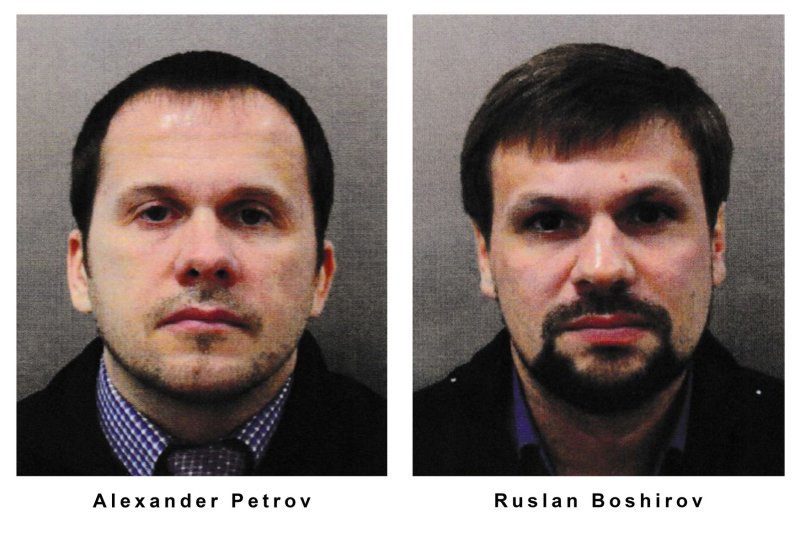Citizen journalism agency Bellingcat said it identified the suspect in the Skripal poisoning case previously known as Alexander Petrov as Dr. Alexander Yevgenyevich Mishkin. Photo courtesy Met Police UK/UPI |
License Photo
Oct. 8 (UPI) -- Investigative journalists said Monday they had uncovered the identity of the second Russian man accused of poisoning former Moscow spy Sergei Skripal.
The suspect previously known as Alexander Petrov is actually Dr. Alexander Yevgenyevich Mishkin, a trained military doctor employed as an undercover officer for Russian military intelligence, known as GRU, citizen journalism agency Bellingcat reported.
The investigative team at Bellingcat said the identification process included multiple open sources, testimony from people familiar with the suspect, as well as copies of personally identifying documents, including a scanned copy of his passport.
Last month Bellingcat said it had identified the first suspect, originally identified under the name Ruslan Boshirov, as Anatoliy Chepiga and obtained leaked files that show Chepiga was deployed to Chechnya three times and included old passport photos of his, which resemble the man British authorities named as Boshirov.
"While Alexander Mishkin's true persona has an even sparser digital footprint than Anatoliy Chepiga's, Bellingcat has been able to establish certain key facts from his background," Bellingcat said.
Mishkin traveled extensively under the name Petrov between 2011 and 2018, including multiple trips to Ukraine and to the self-declared Transnistrian Republic, Bellingcat reported.
British authorities charged Boshirov and Petrov with the March poisoning of Skripal and his daughter in which they were attacked with the nerve agent novichok, which officials say was spread on a door knob to their home in Salisbury.
Officials had also said the men were undercover officers for GRU, although they told Russian, state-run television network RT they were tourists visiting Britain to see the cathedrals















